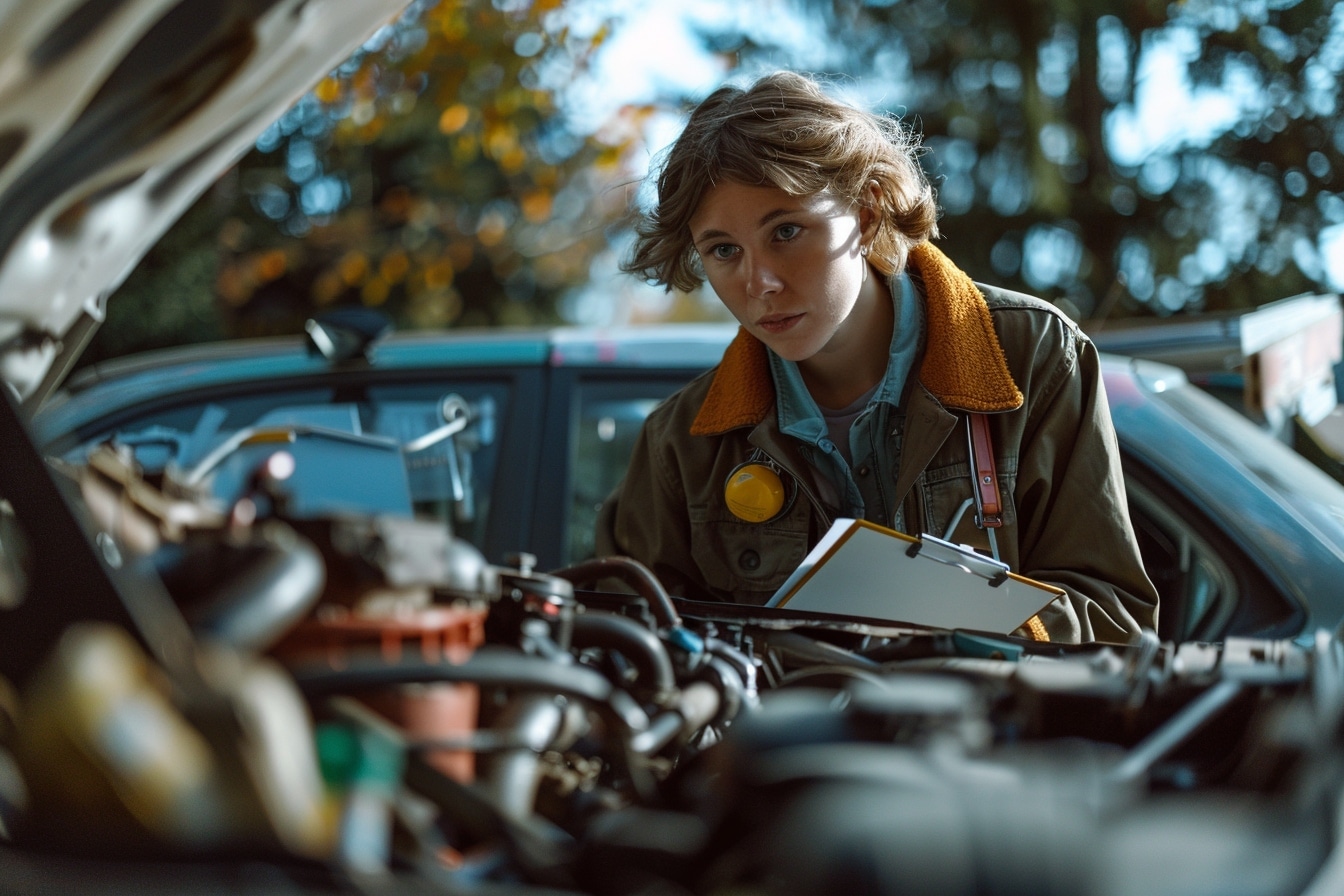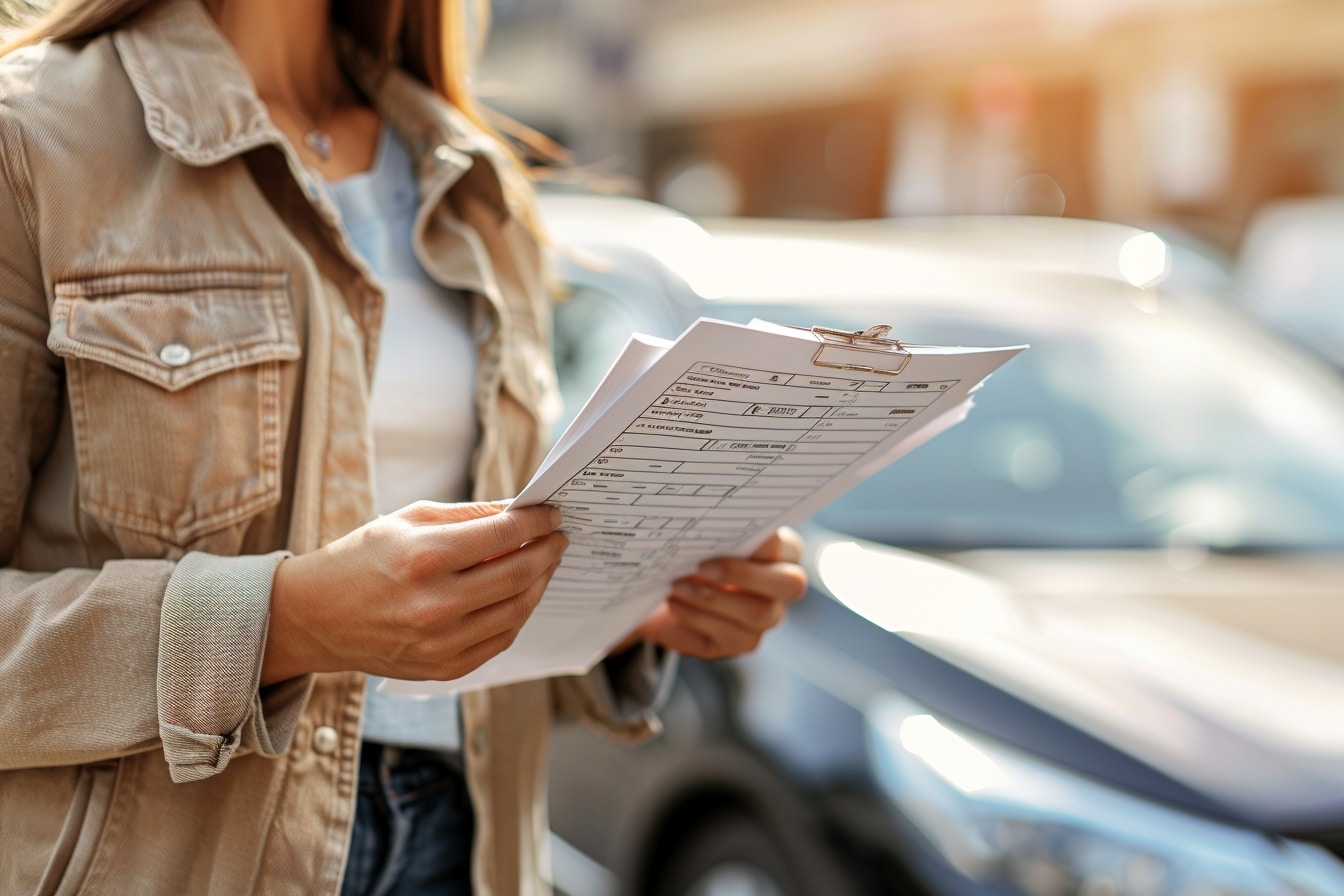Master the Art of Purchasing Pre-Owned Vehicles: Your Comprehensive Guide to Buying Used Cars

Discover the essential steps to buying your used car with complete peace of mind. From research to purchase, follow our advice to make the right choice and find the vehicle that meets your expectations.
Tips for inspecting your vehicle

When you’re about to buy a used car, it’s essential to carry out a thorough inspection to avoid unpleasant surprises. Here are a few practical tips to guide you through this crucial process.
1. Exterior inspection
Check the bodywork for scratches, dents and rust. Make sure doors close properly and seals are in good condition. Inspect headlights, indicators and mirrors to make sure they work properly.
2. Under-hood inspection
Open the hood and inspect the engine for oil, coolant or power steering fluid leaks. Check the condition of belts and hoses. Check that the engine runs smoothly and makes no abnormal noises.
3. Inside the car
Sit in the car and test all the equipment: air conditioning, audio system, electric windows, adjustable seats, etc. Check the condition of the seats, dashboard and carpets. Make sure the car doesn’t emit any suspicious odors.
4. Test drive
Before making a final decision, take the car for a test drive. Test acceleration, brakes, steering and gears. Look out for abnormal noises and vibrations. Also check handling and ride comfort.
5. Technical inspection and vehicle history
Ask to see the vehicle’s technical inspection to make sure it’s up to date and compliant. Also check the maintenance booklet to find out about the car’s history and any repairs carried out. By following these tips and taking the time to thoroughly inspect the used car you’re thinking of buying, you maximize your chances of making a safe purchase. Don’t hesitate to call in a professional for a more thorough appraisal if necessary.
Check the necessary documents

When you’re about to buy a used car, it’s essential to thoroughly check the documents associated with the vehicle. These documents ensure the legality of the transaction and the history of the car. Here’s a practical guide to help you carry out these crucial checks.
Checking the vehicle registration document
The vehicle registration document (carte grise) is an essential proof of the vehicle owner’s identity. To check its validity, make sure that: – the seller’s name matches that on the vehicle registration document; – the vehicle details are correct: make, model, chassis number, etc.; – the vehicle registration document contains the required information and has not been altered.
Checking the certificat de non-gage
The certificat de non-gage proves that the vehicle is not subject to opposition for a particular reason (outstanding credit, theft, etc.). To check: – Go to the official government website and enter the vehicle’s registration number; – Check that no opposition has been reported and that the certificate is less than 15 days old.
Consulting the maintenance booklet
The service book is a record of all repairs and servicing carried out on your vehicle. It is essential to consult it to check: – the regularity of servicing and repairs; – any recurring faults or breakdowns; – the accuracy of mileage records.
Checking roadworthiness
The roadworthiness test certifies that the vehicle complies with safety and environmental standards. Make sure it’s up to date and that: – No major defects were found during the last inspection – The information on the certificate corresponds to that on the vehicle By following these steps, you can be sure of the authenticity of your used car documents and avoid unpleasant surprises. Don’t hesitate to ask an automotive professional for advice on this important step.
Negotiating the sale price
When it comes to buying a used car, negotiating the sale price is a crucial step in getting a good deal. Here are a few tips to help you negotiate successfully and save money on your next purchase.
Find out the vehicle’s value
Before you start negotiating, it’s essential to research the car model you’re interested in. Consult various online sources or use specialized tools to estimate the vehicle’s value on the used market. This will give you a solid basis for discussion with the seller.
Inspect the vehicle in detail
Before talking numbers, take the time to inspect the vehicle thoroughly. Check the car’s general condition, tire wear, mileage, engine condition and so on. Pinpointing any defects or repair needs will give you the arguments you need to negotiate a lower price.
Highlight your negotiating strengths
When talking to the seller, point out the elements that work in your favor. For example, if you have a more advantageous offer elsewhere, if you’re ready to close the sale quickly, or if you’ve identified work that needs to be done on the vehicle. Use these arguments to justify lowering the price.
Stay firm and rational
During the negotiation, keep your objective in mind and don’t let yourself be influenced by the seller’s emotional arguments. Remain calm and polite, but firm in your approach. Show that you’ve done your homework and know the value of the vehicle.
Negotiate the final price, not the monthly payments
When negotiating, focus on the final purchase price of the car, not the monthly financing instalments or other aspects. Make sure you have a clear picture of the total cost of the transaction, including any additional charges. By following these tips and remaining vigilant, you’ll be able to negotiate the sale price of a used car effectively and successfully. Remember that negotiation is a game of balance and compromise, but with the right information and a considered approach, you’ll be able to get a fair and advantageous price for your next used car.
Test-drive the vehicle
When considering the purchase of a used car, a test drive is a crucial step in determining whether the vehicle meets your expectations and is in satisfactory condition. Here are a few tips to help you make an informed decision.
1. preliminary checks
Before starting the test drive, perform a few preliminary checks to ensure that the vehicle is in good condition:– check the general condition of the car, tire wear, paintwork and exterior components; – open the hood to check the oil level and engine condition; – check the interior of the vehicle: condition of seats, operation of equipment (air conditioning, audio system, etc.);
2. during the test drive
while driving, pay attention to a number of factors to assess the vehicle’s performance and condition:– test the various gearbox speeds, acceleration and braking responsiveness; – observe whether there are any abnormal noises coming from the engine, chassis or wheels; – test turns, slots and maneuvers to assess the vehicle’s maneuverability;
3. ask questions
don‘t hesitate to ask the seller questions during the test drive:– ask about the vehicle’s maintenance, any repairs, its history; – ask about fuel consumption, performance in terms of power and comfort; – ask about the possibility of carrying out a full vehicle check-up before buying. by following these tips and remaining vigilant during the test drive, you’ll be able to make an informed decision about buying your used car.
Call in a mechanical expert

Buying a used car can be an excellent option for finding a quality vehicle at an affordable price. However, it’s essential to take certain precautions to avoid unpleasant surprises. Here are a few tips from a mechanical expert to guide you through the process.
Check the vehicle’s history
When considering the purchase of a used car, the first step is to check the vehicle’s history. Use online services that allow you to trace the car’s history, including any accidents, maintenance carried out and the number of previous owners. This will give you a clearer idea of the vehicle’s overall condition.
Thorough inspection by a mechanic
Before finalizing the purchase, we strongly recommend that you have the car inspected by a qualified mechanic. This professional will be able to detect any mechanical or structural problems that might go unnoticed by the uninitiated. A thorough inspection will help you avoid unforeseen expenses after the purchase.
Check the vehicle’s key components
When buying a used car, there are a number of essential elements that need to be closely examined. Make sure the engine is working properly, and check the condition of the brakes, tires and suspension. Also check the oil and coolant levels to make sure the car has been well maintained.
Pricing according to vehicle condition
It’s important not to rely solely on the sticker price when assessing the value of a used car. Take into account the vehicle’s general condition, mileage, year of manufacture and any repairs required. Don’t hesitate to negotiate the price based on the elements you identify during the inspection.
Needs analysis and priorities
Before embarking on the purchase of a used car, clearly define your needs and priorities. Whether in terms of seating capacity, fuel consumption or driving style, orient your choice according to what’s essential to you. This will help you find a vehicle that perfectly matches your expectations. By following this valuable advice and getting the informed opinion of an expert mechanic, you’ll be able to complete your used car purchase with complete confidence. Take the time to be well-informed and methodical, and find the vehicle that’s right for you.
Comments
Leave a comment